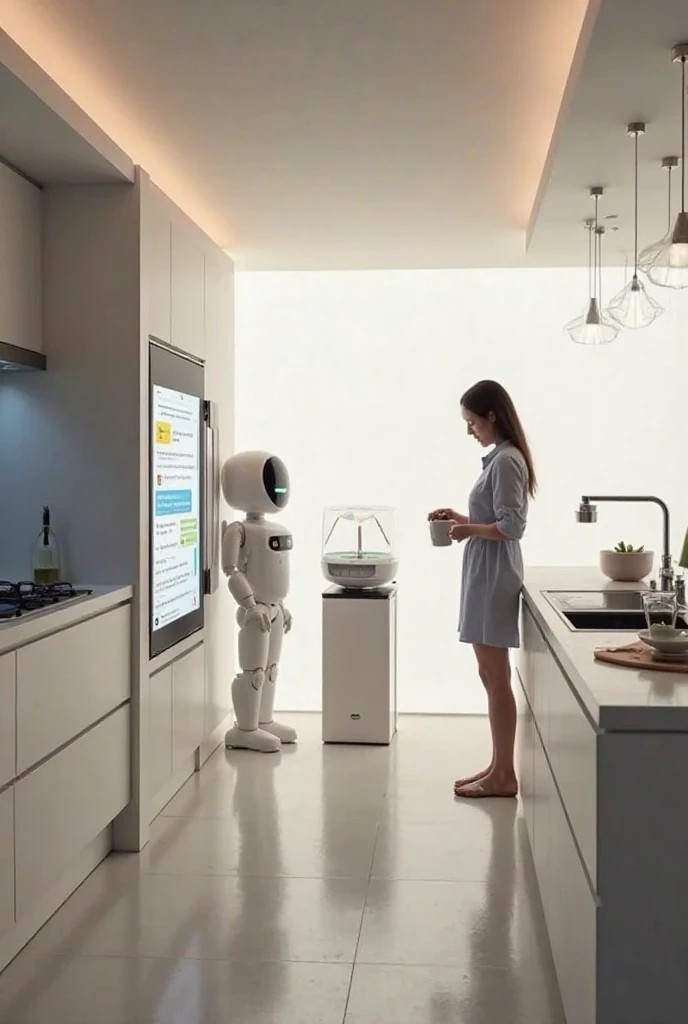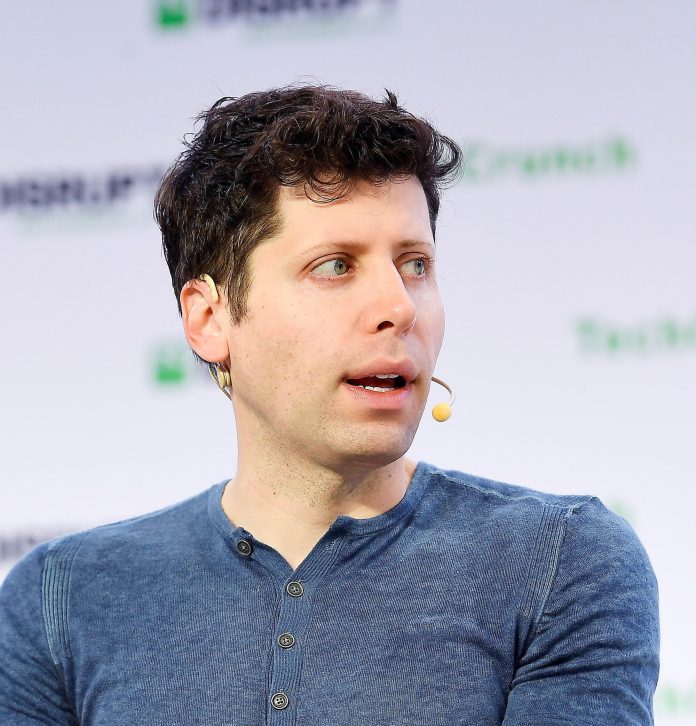There was a time when transistor chips were seen as a marvel of engineering, a breakthrough that changed everything. Now, no one thinks about them, yet they power nearly everything—computers, cars, medical devices, and appliances. Sam Altman, CEO of OpenAI, once suggested that artificial intelligence (AI) will follow the same path. The idea is simple: right now, AI is at the center of public discourse, but in the future, it will quietly fade into the background, embedded into nearly every aspect of modern life without much notice.
At the moment, AI is a hot topic. People are debating its impact on jobs, creativity, and human relationships. Headlines constantly discuss new breakthroughs, from ChatGPT’s latest advancements to AI models that can generate art, write code, or diagnose diseases. But this intense focus won’t last forever. AI is heading toward a stage where its presence will be so fundamental that it becomes unremarkable—just like the internet, electricity, and GPS.
Think about the internet for a moment. When it first emerged, it was revolutionary. Companies built entire marketing campaigns around the fact that they were “online.” Email addresses were advertised prominently, and people marveled at the ability to send messages instantly. Fast forward to today, and nobody talks about “using the internet” anymore—it’s simply assumed to be there. We don’t actively think about Wi-Fi networks or cloud storage; we just expect them to function. AI is on the same trajectory.

In the coming years, AI will become woven into daily life in such a way that people won’t even recognize they are interacting with it. For example, transportation is already shifting in this direction. Self-driving cars may still be in development, but AI is already managing traffic patterns in major cities, predicting congestion, and optimizing routes for ride-sharing apps. When you check Google Maps for the fastest route, AI is analyzing real-time data to give you the best possible path—yet no one stops to think, I just used artificial intelligence. It’s simply part of the process.
The same is happening with personal assistants. Virtual assistants like Siri, Alexa, and Google Assistant are getting smarter, learning our speech patterns, preferences, and habits. In the near future, these AI-driven systems won’t just respond to commands; they’ll anticipate needs. Your smart home won’t wait for you to turn on the lights—it will adjust brightness based on your routine. Your fridge won’t just keep food cold—it will remind you to buy milk when it detects you’re running low. AI will transition from something we interact with to something that silently works in the background, enhancing convenience without demanding attention.
This quiet transformation will extend to nearly every industry. In healthcare, AI is already assisting doctors in diagnosing diseases faster and more accurately. It will continue to refine treatments by analyzing vast amounts of medical data, predicting potential health risks before symptoms even appear. In education, AI-driven tutors and personalized learning systems will adapt to each student’s pace, making education more efficient and accessible. In finance, AI will automate complex decision-making processes, reducing human error and improving fraud detection. These developments won’t be marketed as “AI solutions”—they’ll simply become part of how these fields operate.

The shift from novelty to necessity follows a historical pattern. Consider electricity: when it was first introduced, cities advertised themselves as being “electrified,” and people marveled at light bulbs replacing candles. Now, no one talks about whether a building has electricity—it’s just expected. The same happened with GPS technology. What began as a military innovation became a luxury for early adopters with dedicated GPS devices. Today, it’s embedded in every smartphone, directing people without them even thinking about the technology behind it. AI is walking the same path.
Perhaps the most fascinating aspect of AI’s evolution is how it will shape creativity and work. Right now, AI-generated content is a subject of debate—can it truly replace human creativity? Will artists and writers lose their place in the digital age? These are valid questions, but history suggests that new technology doesn’t eliminate creativity; it simply reshapes it. Photography didn’t kill painting. Digital music didn’t destroy live performances. Instead, each innovation opened new doors for artistic expression. AI will likely follow the same pattern, becoming a tool that amplifies human creativity rather than replacing it.
As AI blends into daily life, the way we interact with technology will feel more natural. Instead of typing commands or clicking buttons, interfaces will become more intuitive. Voice recognition will improve, allowing seamless communication with devices. Augmented reality (AR) and AI could merge to create intelligent environments where digital information enhances real-world experiences in real time. Imagine walking into a store where AI analyzes your past preferences and subtly suggests products without being intrusive. Or consider a workplace where AI quietly optimizes meetings, schedules, and workflow in ways employees barely notice but greatly benefit from.
Despite the concerns surrounding AI’s rise—job displacement, ethical dilemmas, and misinformation—history shows that major technological advancements tend to integrate in ways that ultimately serve humanity. The key challenge will not be whether AI becomes omnipresent but how we ensure it remains aligned with human values and interests.
Rather than being something separate, AI is on track to blend seamlessly into the world, enhancing efficiency, creativity, and problem-solving. The transition may be subtle, but its impact will be undeniable. And one day, we may look back and realize AI didn’t take over the world—it simply became part of it.














Thanx for the effort, keep up the good work Great work, I am going to start a small Blog Engine course work using your site I hope you enjoy blogging with the popular BlogEngine.net.Thethoughts you express are really awesome. Hope you will right some more posts.
Hi my family member! I wish to say that this article is awesome, nice written and include approximately all vital infos. I would like to look extra posts like this .
As I site possessor I believe the content matter here is rattling great , appreciate it for your efforts. You should keep it up forever! Good Luck.
I do not even know how I ended up here, but I thought this post was great. I don’t know who you are but certainly you’re going to a famous blogger if you are not already 😉 Cheers!
Very interesting details you have mentioned, appreciate it for posting. “These days an income is something you can’t live without–or within.” by Tom Wilson.
Hi! Quick question that’s entirely off topic. Do you know how to make your site mobile friendly? My site looks weird when viewing from my apple iphone. I’m trying to find a theme or plugin that might be able to resolve this issue. If you have any recommendations, please share. Appreciate it!
I delight in, cause I discovered exactly what I was looking for. You have ended my four day lengthy hunt! God Bless you man. Have a great day. Bye
I’ve recently started a web site, the information you provide on this website has helped me greatly. Thanks for all of your time & work. “If you see a snake, just kill it. Don’t appoint a committee on snakes.” by H. Ross Perot.
What’s Taking place i am new to this, I stumbled upon this I have found It positively useful and it has aided me out loads. I am hoping to contribute & help other users like its helped me. Good job.
Với công nghệ tiên tiến, Go 88 tại go88-d com đảm bảo mọi giao dịch được xử lý nhanh chóng, minh bạch và hỗ trợ người chơi 24/7.
78win cá độ – cổng game cá cược uy tín với giao diện đẹp, kho game đa dạng: thể thao, đá gà, bắn cá, xổ số… Thưởng mỗi ngày cùng 78win tokyo – cược thông minh, đổi thưởng nhanh!